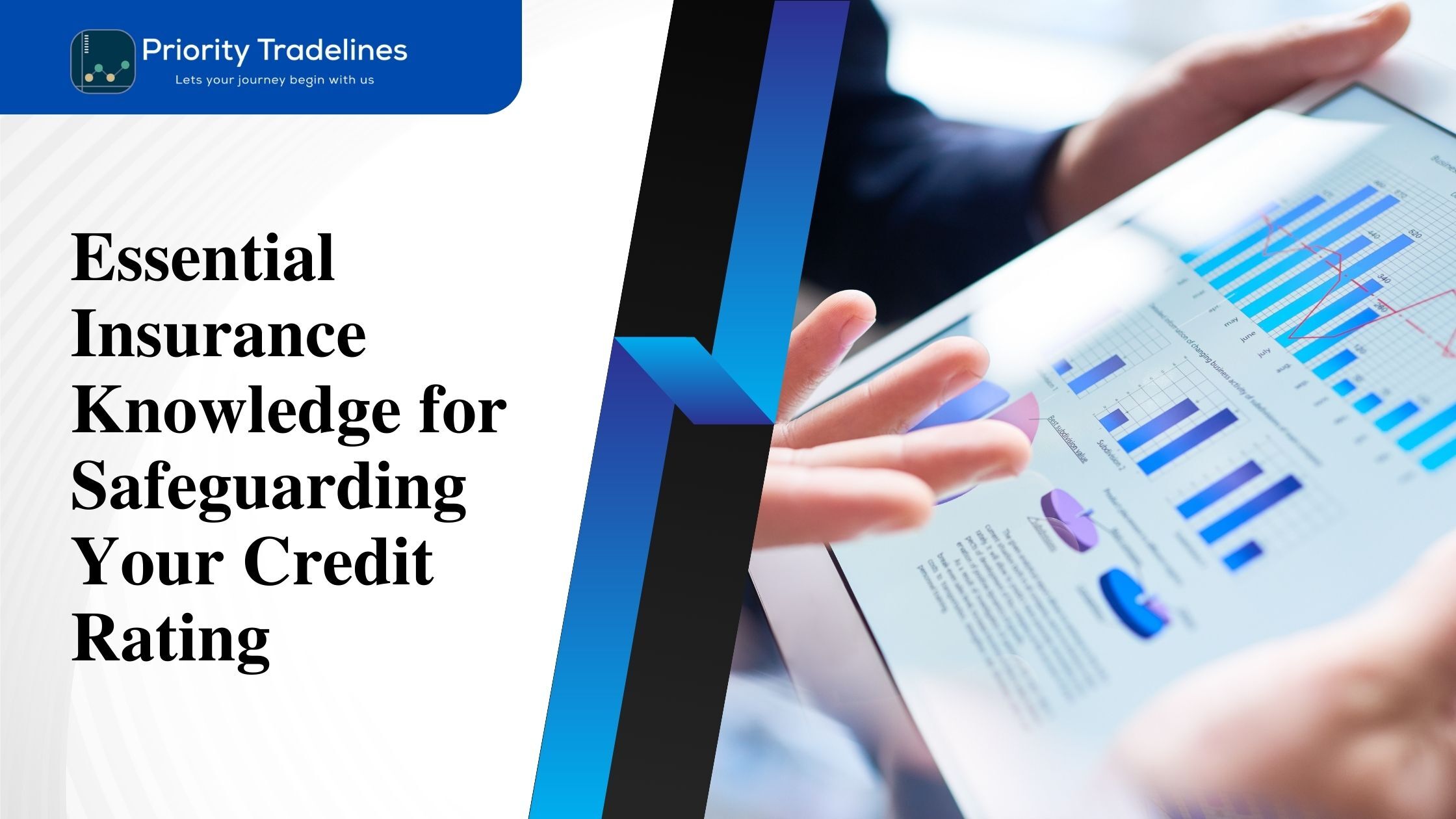In today's financial landscape, having a solid credit rating is essential for various aspects of your life. From securing loans to renting an apartment, your credit score plays a significant role. But did you know that insurance can impact your credit rating? Understanding the relationship between insurance and credit is crucial for safeguarding your credit score and financial well-being.
What is Credit Rating?
Before delving into the connection between insurance and credit rating, it's essential to grasp the concept of credit rating itself. Credit rating al, or credit score, is a numerical representation of your creditworthiness. Lenders, landlords, and insurance companies use this score to assess your financial reliability.
Insurance and Credit Rating
While insurance may not directly determine your credit score, it can indirectly impact you. Insurance claims, particularly when they involve missed payments or late settlements, can affect your credit rating. For example, if you fail to make timely payments for your auto insurance premium or file numerous claims within a short period, it can signal financial instability to potential lenders, leading to a lower credit score.
Types of Insurance Affecting Credit Rating
Understanding how different types of insurance impact your credit rating. Let's explore the critical types of insurance that can affect your credit rating:
1. Auto Insurance: It is a legal requirement in most jurisdictions. However, it also affects your credit rating. Insurance companies consider your credit history when determining premiums.
Tips for maintaining a good credit score with auto insurance:
• Pay your premiums on time.
• Avoid filing frequent claims for minor damages.
• Regularly check your coverage to ensure it meets your needs without excessive costs.
2. Homeowner's/Renter's Insurance: Homeowner's or renter's insurance protects your property and belongings. When assessing your eligibility for coverage and determining premiums, insurers may check your credit history. They consider credit-based insurance scores, which are different from traditional ones but still reflect your creditworthiness.
• Maintaining a better credit history by paying bills on time and managing debts responsibly.
• Regularly review your credit report for accuracy and address any errors promptly.
• Maintain your credit utilization ratio low by not using your credit cards.
3. Health Insurance: Health insurance is essential for managing medical expenses and ensuring access to necessary healthcare services. While health insurance doesn't directly impact your credit rating, unpaid medical bills and outstanding debts resulting from healthcare services can negatively affect your credit score.
• Pay medical bills promptly to avoid them being sent to collections.
• If you encounter challenges in paying medical bills, contact the healthcare provider or the billing department to discuss possible payment plans or financial assistance options.
• Regularly review your medical bills for accuracy and dispute any discrepancies.
4. Life Insurance: IT provides financial protection for your loved ones in the event of your passing. While life insurance doesn't directly influence your credit rating, it plays a significant role in managing financial obligations. Life insurance can help safeguard your credit rating by ensuring your debts are covered, and your loved ones are financially secure in your absence.
• Regularly review your life insurance coverage to ensure it aligns with your financial needs.
• Designate beneficiaries clearly and keep the policy information updated
.
• Communicate with your loved ones about the existence and details of your life insurance policies so they can take appropriate steps in case of your passing.
Credit Monitoring and Insurance
It's vital to have access to credit monitoring services to stay on top of your credit rating. These services help you track any changes to your credit profile, such as new accounts opened in your name, changes in credit limits, or missed payments. Early detection of suspicious activities can help you promptly address identity theft or fraudulent accounts.
Insuring Against Identity Theft
Identity theft poses a significant risk to your credit rating. Criminals can use your personal information to open fraudulent accounts, make unauthorized purchases, or engage in other financial activities that can leave a trail of unpaid debts and damage your credit score. Recovering from identity theft can be a lengthy and challenging process. In case of identity theft, insurance coverage can assist in the process of restoring your credit and resolving any financial issues. This coverage typically extends beyond financial losses, offering peace of mind and a reliable support system during a stressful time.
Credit Repair and Insurance
If your credit rating has already been negatively affected, there are credit repair agencies that can help you navigate the credit restoration process. Additionally, some insurance products assist in credit repair efforts. These products offer resources and guidance to help you rebuild your credit and improve your creditworthiness over time.
Insurance-backed credit repair programs may include services such as credit counseling, debt management plans, and educational materials on responsible financial practices. Individuals can take proactive steps toward repairing their credit and regaining financial stability by leveraging these resources.
Building Credit with Insurance
Certain types of insurance, such as secured credit cards or renter's insurance, report payment history to credit bureaus, allowing you to establish and strengthen your credit profile.
• Secured Credit Cards: These credit cards require a minimum security deposit and are designed for individuals with a limited credit history or low credit scores. Making timely payments on a secured credit card can help build a positive credit history.
• Renter's Insurance: While renter's insurance doesn't directly impact your credit rating, some insurers report on-time payments to credit bureaus. Paying your premiums promptly and consistently can help establish a positive payment history.
• Credit Builder Loans: Some financial institutions offer credit builder loans, which work by holding the loan amount in a savings account while you make monthly payments. As you repay the loan, positive payment history is reported to credit bureaus, helping you build credit.
• Responsible Credit Utilization: If you have a credit card, use it responsibly by keeping your credit utilization ratio low (using a small portion of your available credit) and paying your balance in full each month.
Insurance and Debt Management
Here are some ways in which insurance intersects with debt management:
• Debt Consolidation Insurance: Debt consolidation insurance allows you to combine multiple debts into a manageable payment. This insurance coverage protects against unexpected events, such as disability, job loss, or death, that could prevent you from meeting your debt obligations.
• Mortgage Protection Insurance: Mortgage protection insurance provides coverage If you cannot meet your mortgage payments due to unforeseen circumstances like disability, job loss, or death.
• Medical Debt and Insurance: Medical debt is a common cause of financial hardship and can impact your credit rating. Having adequate health insurance coverage helps protect against excessive medical expenses and can prevent medical debt from adversely affecting your credit.
• Credit Insurance: Credit insurance is designed to cover specific debts, such as credit card balances, personal loans, or auto loans, in case of unexpected events that may hinder your ability to repay. By safeguarding against events like disability, job loss, or death, credit insurance can help protect your credit rating and provide peace of mind.
Summary
In conclusion, understanding the essential insurance knowledge for safeguarding your credit rating is crucial in today's financial landscape. By recognizing the relationship between insurance and credit, you can proactively protect your credit score and overall financial well-being.
Review your insurance coverage regularly, consult with insurance professionals, and make informed decisions that align with your financial goals. Safeguarding your credit rating with essential insurance knowledge is integral to securing your financial future.



